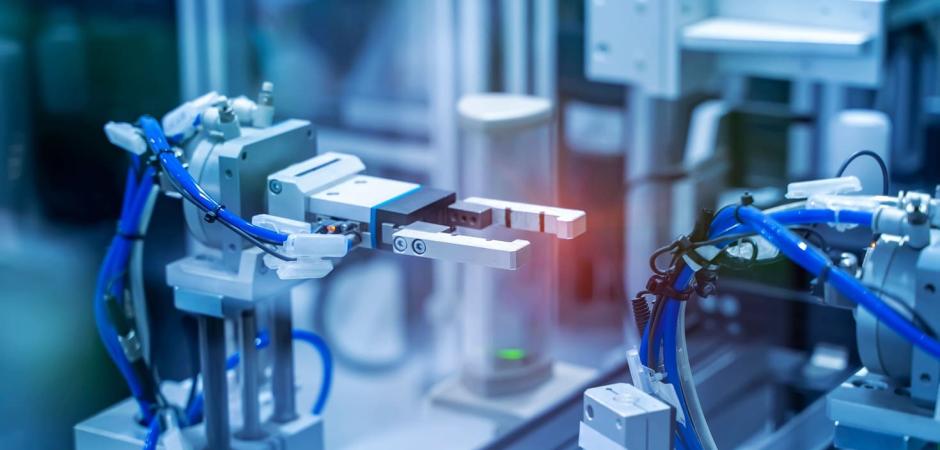
Within the Sumcab catalogue of cables for industrial automation, there is a category of special relevance: cables for communication in Industry 4.0, which is the one that introduces the use of intelligent digital technologies in industrial processes, thus combining advanced production systems with new technologies such as automation, interconnectivity or monitoring. Data transmission between equipment in an industrial plant is carried out according to different protocols depending on the functions to be communicated and the way in which they are communicated. We have different ranges of cables for industrial communication that respond to each type of communication needed in this environment and, among these families, there are PROFIBUS cables, which respond to the communication protocol of the same name.
What PROFIBUS cables are and what they are used for?
In computing, a bus or channel refers to a digital data transmission system between the components of one or more computers. A fieldbus is understood to be the bus system that connects different sensors and actuators with a PLC (Power Line Communications), a controller that detects different signals and, with them, formulates and sends actions according to what it has been programmed for. The use of fieldbuses in the industry offers various advantages: it simplifies the installation of communication systems between equipment, with less wiring and smaller control points, which facilitates network expansion and enables faster detection and resolution of incidents; in addition, a single cable can transmit digital and analogue signals, and do so without interference in the analogue values. In short, communication in a fieldbus is more fluid and secure.
For this system to work, its different elements need to share a protocol that allows communication between them without problems. Communication cables that require high data transmission respond to different communication protocols and fieldbus standards, including ETHERNET, PROFINET, INTERBUS, FIELDBUS, DeviceNet or PROFIBUS (PROcess Field BUS).
PROFIBUS is defined as a single standardised communication protocol for fieldbus applications in industry and in the automation of any process, as well as in activities related to security and motion control.
Differences between PROFIBUS PA and PROFIBUS DP
There are two types of PROFIBUS cables that differ mainly in the applications for which they are intended. They share the same protocol and both are used in industrial automation, but due to the features of the environments in which they are used, they have different physical support and speed. PROFIBUS DP is considered to be the standard protocol, whereas PROFIBUS PA would be a subset of that standard.
PROFIBUS DP (Decentralised Peripherals) connects control systems and controllers with field devices and also allows simultaneous data exchange with higher-level systems. This cable uses an RS-485 layer, a technology used for applications that demand high data transmission, but not necessarily high protection.
PROFIBUS PA is used in process automation (PA) which is usually slower but is typically found in hazardous environments. For these environments, cables with an MBP (Manchester Encoded Bus Powered) layer are used; they do not allow as high a transmission speed as RS-485, but for these processes, the 31.25 kbit/s they offer are more than sufficient, and they have the advantage that MBP is intrinsically safe.
PROFIBUS DP and PA cables can be easily connected via a media converter or by using a DP/PA interface. In the first case, there is a common PROFIBUS DP network that acts as a master and directly sees the nodes of the PA network, to which different segments can be connected; in this scheme, communication is direct. The second case is an approach in which a faster backbone network is needed; here, the PA segment sometimes functions as a master (and DP as a slave) and, although the communication is not as direct, it allows sharing the high speed of the backbone network.
Advantages of using PROFIBUS
As a single protocol, PROFIBUS eliminates the need to use different systems and allows hybrid automation. But, as it is based on communication standards and works with modules, it is flexible and easy to use for users.
PROFIBUS cables are based on the standardised communication protocol PROFIBUS DP, which offers the system great consistency, but its hybrid and modular nature allows various applications: industrial automation, motion control, security or process automation. These industrial cables are designed to be highly functional; they are characterised by their productive value and efficiency.
The use of PROFIBUS cables for industrial communication provides multiple benefits in various areas:
- Engineering: simplifies system design, offers multiple cable options, needs less equipment and wiring, simplifies documentation.
- Operability: improves maintenance conditions, allows production flexibility, improves management of the industrial plant, increases transparency of processes.
- Management: greater production in less time, better quality products, lower costs and greater profitability, safer working environments.
- Industrial installations: use of advanced technology, extends the useful life of plant, reduces the need for updates and their cost, easy system to migrate and scale.
Types of PROFIBUS Sumcab cables
Although PROFIBUS cables all share the same protocol, they are divided into two large groups: PROFIBUS DP AND PROFIBUS PA. However, within each of these groups, there is a wide range of cables according to their features, which meet the particular needs of specific industrial environments in which, for example, there is a greater possibility of fires occurring or greater resistance is required, but without losing flexibility. We have various series (Sumflex, Sumsave, Sumline) in which qualities such as flexibility and resistance, security or connectivity are reinforced.
In these series of PROFIBUS cables, different models are offered that are designed to serve all kinds of markets and applications. Therefore, within each series, for example, there are LSZH cables (Low Smoke Zero Halogen; in a fire, they have low smoke emission and do not contain halogen), SY (Steel Y; it has galvanised steel covered by a layer of transparent PVC, which offers great protection in high stress situations, but without losing flexibility) or SWA (Steel Wire Armoured; a steel armoured cable characterised by its high resistance to mechanical damage and its robustness).
For example, the Sumline® PROFIBUS DP Fast Connect SY fixed-installation cable is steel braided and PVC-sheathed, providing protection against electromagnetic interference; it is also designed for Fast Connect technology (easy to connect). It is used in the wood and cellulose, food and beverage, automotive, oil, pharmaceutical, packaging and general manufacturing industries. The Sumsave® PROFIBUS PA LSZH SWA cable, on the other hand, is halogen-free with a steel wire crown designed for ATEX zones (explosive atmospheres).
The best way to find the most appropriate cable for a given application occurring in a particular environment is to contact our advisory service. Not only can we advise on which type of cable is most suitable, but we can tailor it to suit any requirement and circumstance.

